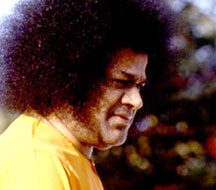
Who is a Mudamathi according to Shankara
Bangalore, Brindavan (Summer Course )
Description
The most important thing that has been communicated in these verses is the word mudamathi (one so foolish that he cannot understand or grasp). We have to ask, who in this context is the mudamathi or the one that cannot understand. Shankara himself has given a beautiful answer to this question and the answer is contained in the sentence “Nastiko Moodha Udyate.” That is one who does not believe in God or one who is an Anatmavadi, who does not accept the existence of Atma, is the foolish man referred to here. These words “Nastiko Moodha Udyate” have been used by Dharmaraja in the Mahabharatha in the part which relates to the questions put by the Yaksha. Today, we are understanding that mudamathi signifies one who is a total materialist. We have to make some further enquiry as to what this word means. There are very few people who realise the truth in the statements, “I am not the body. The body is something that is temporary and will perish. I, on the other hand, am imperishable and I am the immortal child of Divinity.” When we look at these from the worldly aspect, there are many facets that may be noted. One is to tell oneself, I am born in this body, I am growing in this body, and I have the right to enjoy the various pleasures of this world with this body. One may waste his life in this manner. Another aspect is that, when I can decide as to what I like and what I dislike, where does God come into the picture? Why should I have any faith in God and invoke His blessings for my likes and dislikes? It is not as if there is no other aspect which is quite the opposite of these. Some people feel that they are paying rent for the house in which they live, that they are paying taxes for the professions they engage in, that they are paying for the water, electricity and for practically everything that they use in their daily lives. They question the need for faith in God in any context. It is true that such people are paying taxes for all worldly possessions like a house, water, light, power and so on. They should also ask themselves what taxes they are paying to mother earth for providing all amenities and for meeting many of our requirements, thus enabling man to carry on his daily life. They should also ask themselves what taxes they are paying to the sun, to the moon and to the space around us for providing the needed light, air and the capacity to work. These unseen powers, which keep us going, are not being paid anything in return.
Topics
-Bhaja Govindam
-
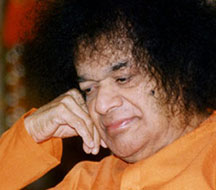
Who is victorious in life? Questions Shankaracharya: With beautiful analogies
00:05:10Shankaracharya questioned, “Chitam jagatyeva?” meaning who is the winner in the world. Each student replied differently-- “Winner is the great warrior who wins over the enemies with courage in war.” “A person who climbs the Himalayas and mounts a flag there is the winner” “Crossing the mighty oceans proving one’s valour and courage is the real warrior.” ---in this manner the students gave their own interpretation. Shankaracharya replied with a smile, “O students! You are viewing success on a physical plane, where anybody can achieve success. When two animals or birds fight one of them is victorious. Birds too cross the mighty oceans and fly high above the Himalayan Mountains. Do you think it is the victory that they have achieved? No! ‘Manohiyena’- meaning victorious is the one who has mastered the mind. To think that one gained victory without mastering the mind is mere delusion. The mind is like the moon. “Chandrama manasojathaha, chaksho sooryo ajayatha” – Moon reflects the mind and sun is the presiding deity of the eyes. The mind, which is compared to the moon, cannot shine independently. The moon shines at the night. How does it shine? The Sun light falls on the moon causing it to shine. It is essentially the sun shine that one sees in the night as the reflection from the moon. One needs to ponder on this properly. The sun light is very intense and bright. One cannot bear the intensity of the sun light. But the moon light is cool and soothing. Though the light from the moon and the sun is the same, what is the reason for the brightness and intensity of sunlight and coolness of the moon light? The mind is full of desires and is tamasik in nature. Darkness is the characteristic aspect of tamas. It means that when the desires are fulfilled the mind is at peace but becomes restless when the desires are not fulfilled. It is never hot. This is the nature of mind. Nobody can restrain the mind. “Sankalpavikalpatkam manaha” means mind is a conglomeration of good and bad thoughts. It is not possible to stop the thoughts even for a second. Just as the waves move in the ocean incessantly so also thoughts exist and arise in the mind incessantly. He, who understands and arises above the mind with all its thoughts, is truly victorious in this world.
-
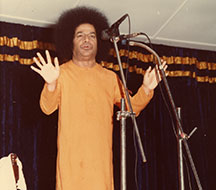
We need to uphold the teachings of Adi Shankara
00:01:38Today, you have learnt the verse of Sankara relating to Satsang and the benefits which Satsang confers on us. We have seen the inner and significant meaning of this verse. In addition to this, we must also put it into practice. It is then that you will be able to realise the Atma Tattwa and develop faith in your own ability and yourself. I hope that you will stick to Satsang in future and keep away from all bad company.
-
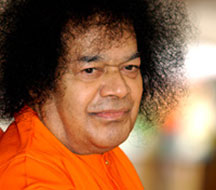
Swami on Bhaja Govindam and its importance
00:03:46While individuals may have their own notions and these may differ from each other, the Atma Tattwa is one and the same to whomsoever it belongs. Shankara taught this oneness of the Atma Tattwa. It is with a view to promote faith in God that Shankara had taken the Mudamathi as an instrument in the very first verse that he composed. If we want to climb to the top of a tall building, we use a ladder for that purpose. For such a ladder, there must be a base and a top, on both of which, it is supported. Thus, what Shankara did was to take the Mudamathi as the base and the Mukthamathi as the top or the destination. Between the base of Mudamathi and the destination of Mukthamathi, he used the twenty-nine verses that describe the aspects of life as the twenty nine steps of the ladder. When we go further on and understand all the succeeding verses, there is no doubt that our ignorance will be dispelled and we will get a clear picture of what Shankara conveyed to us in this remarkable set of thirty-one verses of Bhaja Govindam.
-
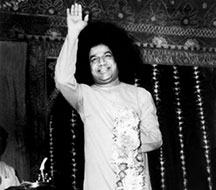
Swami explaining the meanings of Govinda
00:09:47For the verse Bhaja Govindam, Govindam Bhaja, there are varied interpretations given by many learned scholars; and the word Govindam has been assigned several meanings. But the real meaning of Govindam is that it refers to one who looks after the cows or tends the cows. The inner meaning is that it refers to one who has control over the animal nature in man. There is some animal nature which is remaining as a residue in man. This residual animal nature of man has to be changed and transformed. One who is able to transform this animal nature in man is Govinda. For an animal, human nature is inaccessible as a goal, but for man, Divine nature is accessible as a goal. However, as mentioned earlier, there is a residual animal nature in man and we have to enquire what is meant by this animal nature. When we show green grass to an herbivorous animal, it is attracted, comes close and expresses its pleasure by moving its tail. The same animal runs away if you take a stick and go to beat it. In this manner, man today is attracted, comes close if you show him some money, but if you are angry and shout at him, he runs away. Is this not animal nature in human beings? On the other hand, as human beings, we should not be afraid nor should we cause fear to others. We are not cattle to be afraid and we are not animals to cause fear to other. However, when some wrong deeds come to our notice or when something false is said, then to expose the truth separated from untruth and punish the persons responsible for such misdeeds should be the accepted qualities of man. These cannot be the qualities of an animal. So when we utter the word Govinda, we must understand and discriminate between wrong and right and punish the person for his wrong deeds and reward him for his good deeds. To carry on the improvement of human nature so as to move closer to the Divine is thus the aspect of Govinda. Every day you have to think of Govinda, utter His name and develop faith and confidence in Him. It is not possible to do otherwise and yet be happy. Another meaning of the word Govinda is that it is an uttered sound. Whether it is for the words that are uttered by man or for the sounds that are produced by animals or for what has been said in the Vedas, there is only one base. There may be superficial differences in the quality, but the base is the same sound for all of them. Therefore, this alternative meaning enables us to look at Govinda as the personification of sound or sabda. Gam or cow, Bhumin or earth, Ved or Vedas and Swarga or heaven: He who represents all these things is Govinda. This word Bhumin also gives us the meaning that Govinda is at the back of all the drama of this world that is enacted on the earth. In the word Swarga, we get the meaning that He is the Lord of the place where we can get all kinds of happiness and pleasure. In referring to the Vedas, we also get the meaning that in talking of Govinda, we are talking of the aspect of Lord Himself since we say “Vedo Narayana Hari Hi.” Thus, we have to recognise that whether it is in the gross, in the subtle or in the causal appearance of this world, it is Govinda who is shining.
-
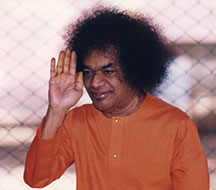
Meaning of Samprapthe Sannihithe Kale
00:01:47In the second half of the verse, Shankara is saying that as your death is drawing close and as your end is nearing, reciting rules of grammar will not help you. For man, amongst all the fears that come his way, the fear of death is the most terrifying one. At the time of death, the feeling generally is not just that a lakh (hundred thousand) of scorpions are crawling on you; it is as painful as if a lakh of scorpions are stinging you all the time. Shankara is telling you that when death, of which you are afraid in such an extreme manner, approaches you and you are suffering great pain, nothing except the thought of God can save you. That is what he means by saying that reciting the rules of grammar or recollecting your scholarship in various fields will not save you when you are close to death.
-
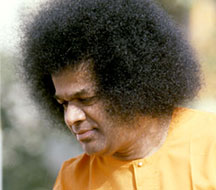
Who is a true Mudamathi
00:01:15It means that so long as you do not yearn for the grace of God and so long as you allow your life and its activities to get mixed up with the five elements around you, you will be meeting with a great many disappointments and difficulties. You will be wasting your life and there is no escape from the truth that you will be spending your life like a Mudamathi.
-
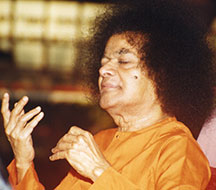
Rules of grammar do not come to your rescue
00:01:11“Punarapi maranam, punarapi jananam Punarapi janani jathare sayanam, Iha samsare bahu dukhare, Krupayaa paare, pahe muraare.” Adi Shankara said, “Man is born again and again, Lying in the womb of the mother, Experiencing the pain and the pleasure, O man, seek the Lord to escape the cycle of birth and death.” There isn’t a book that is not read by Adi Shankara nor is there any hymn missed being written by him. He saw a person sitting under a tree by the Ganges river immersed deeply in the writing of the rules of grammar. He was not mindful of the people passing by. Adi Shankara, accompanied by his twelve disciples was going to river ganga for his bath. The Brahmin sitting under the tree with his eyes closed, was repeating the grammar principle, “dukrunkarane”
Topics
- Analogies
- Atma
- Attachment
- Balvikas
- Bhajans
- Body
- Character
- Company
- Compassion
- Culture
- Day to day
- Desire
- Devotees
- Devotion
- Dharma
- Discipline
- Discrimination
- Doctors
- Education
- Faith
- Festivals
- Forbearance
- Gayathri
- God
- Gratitude
- Guru
- Health and healthcare
- HIS Life
- Human values
- India
- Karma
- Love
- Mahabharata
- Man
- Meditation
- Mind
- Music
- Musicians
- Namasmarana
- Nature
- Parents
- Philosophical concepts
- Pleasure and Pain
- Practice
- Ramayana
- Religion
- Sacrifice
- Sadhana
- Sai Organization
- Saints
- Sathya
- Science
- Senses
- Service
- Sevadal
- Shanthi
- Shirdi Baba
- Society
- Spirituality
- Students
- Thoughts
- Time
- Unity
- Upanishad
- Vedas
- Vices
- Yoga
- Youth
